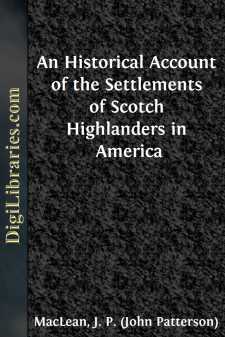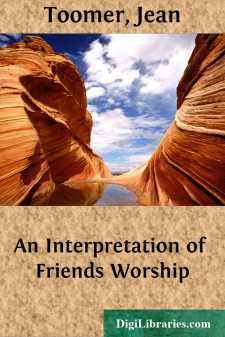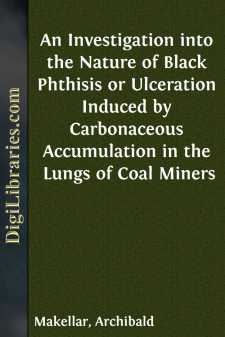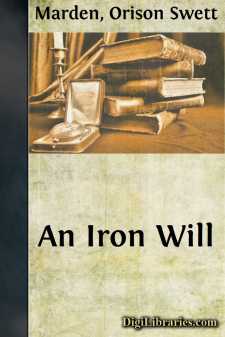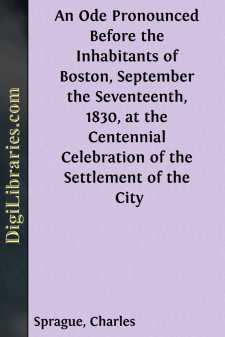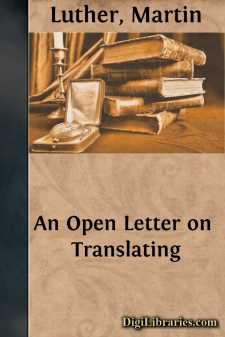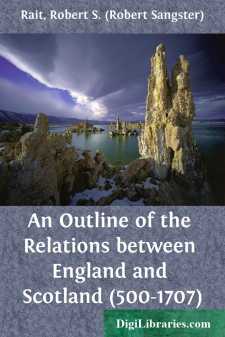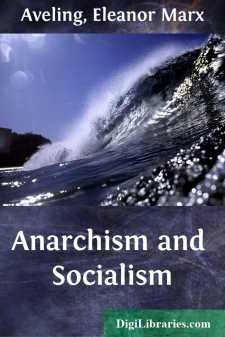Non-Classifiable
- Non-Classifiable 1768
Non-Classifiable Books
Sort by:
CHAPTER I. The Highlanders of Scotland. A range of mountains forming a lofty and somewhat shattered rampart, commencing in the county of Aberdeen, north of the river Don, and extending in a southwest course across the country, till it terminates beyond Ardmore, in the county of Dumbarton, divides Scotland into two distinct parts. The southern face of these mountains is bold, rocky, dark and...
more...
by:
Edward Jenner
AN INQUIRY, &c. &c. The deviation of Man from the state in which he was originally placed by Nature seems to have proved to him a prolific source of Diseases. From the love of splendour, from the indulgences of luxury, and from his fondness for amusement, he has familiarised himself with a great number of animals, which may not originally have been intended for his associates. The Wolf,...
more...
by:
Jean Toomer
INTRODUCTION I was not more than ten years old when I first heard mention of the Quakers. The grown-ups of my family were talking among themselves, speaking of an uncle of mine who lived in Philadelphia and operated a pharmacy near the university. I had never seen this uncle and was curious about him, so my ears were open. Presently a reference to the Quakers caught my attention. I wanted to know who...
more...
INTRODUCTION Rudolf Eucken was born at Aurich, East Frisia, on the 5th of January 1846. He lost his father when quite a child. His mother, the daughter of a Liberal clergyman, was a woman of deep religious experience and of rich intellectual gifts. When quite a boy he came at school under the influence of the theologian Reuter, a man of wonderful fascination to young men. The questions of religion and...
more...
PREFACE. An abstract of the investigations into the nature of carbonaceous infiltration into the pulmonary tissues of coal miners, was read by Dr Makellar at a meeting of the Medico-Chirurgical Society of Edinburgh, Wednesday, 8th July, 1845, Dr Gairdner, President, in the Chair. Reference was made, in particular, to the East Lothian coal-miners. The carbonaceous disease described, was stated to be...
more...
CHAPTER I. TRAINING THE WILL. "The education of the will is the object of our existence," says Emerson. Nor is this putting it too strongly, if we take into account the human will in its relations to the divine. This accords with the saying of J. Stuart Mill, that "a character is a completely fashioned will." In respect to mere mundane relations, the development and discipline of...
more...
by:
Charles Sprague
I.Notto the Pagan’s mount I turn,For inspiration now;Olympus and its gods I spurn—Pure One, be with me, Thou!Thou, in whose awful name,From suffering and from shame,Our Fathers fled, and braved a pathless sea;Thou, in whose holy fear,They fixed an empire here,And gave it to their Children and to Thee.II.And You! ye bright ascended Dead,Who scorned the bigot’s yoke,Come, round this place your...
more...
by:
Martin Luther
Preface Wenceslas Link to all believers in Christ: The wise Solomon says in Proverbs 11: "The people who withhold grain curse him. But there is a blessing on those who sell it." This verse speaks truly concerning all that can serve the common good or the well-being of Christendom. This is the reason the master in the gospel reprimands the unfaithful servant like a lazy scoundrel for having...
more...
INTRODUCTION The present volume has been published with two main objects. The writer has attempted to exhibit, in outline, the leading features of the international history of the two countries which, in 1707, became the United Kingdom. Relations with England form a large part, and the heroic part, of Scottish history, relations with Scotland a very much smaller part of English history. The result has...
more...
In reprinting Anarchism and Socialism, by George Plechanoff, we realize that there is not the same need for assailing and exposing anarchism at present as there has been at different times in the past. Yet the book is valuable, not merely because of its historic interest but also to workers coming into contact with the revolutionary movement for the first time. The general conception of anarchism that...
more...


